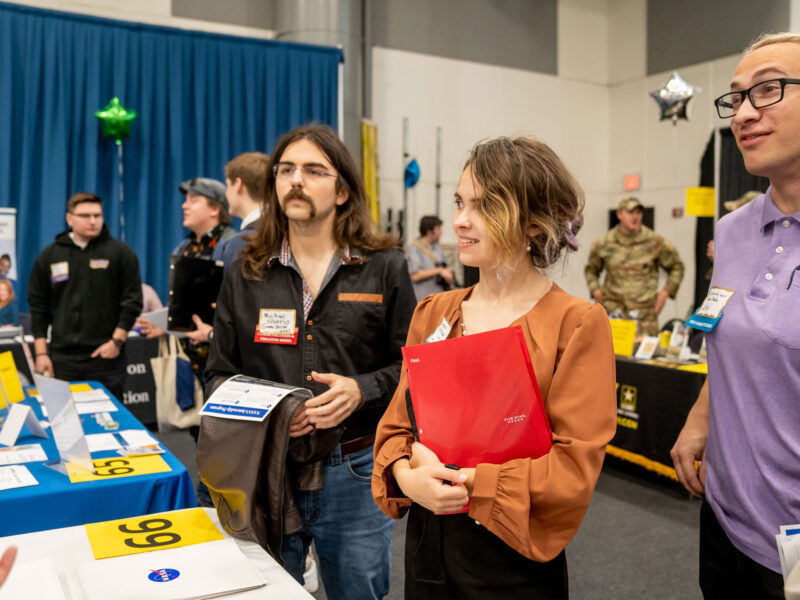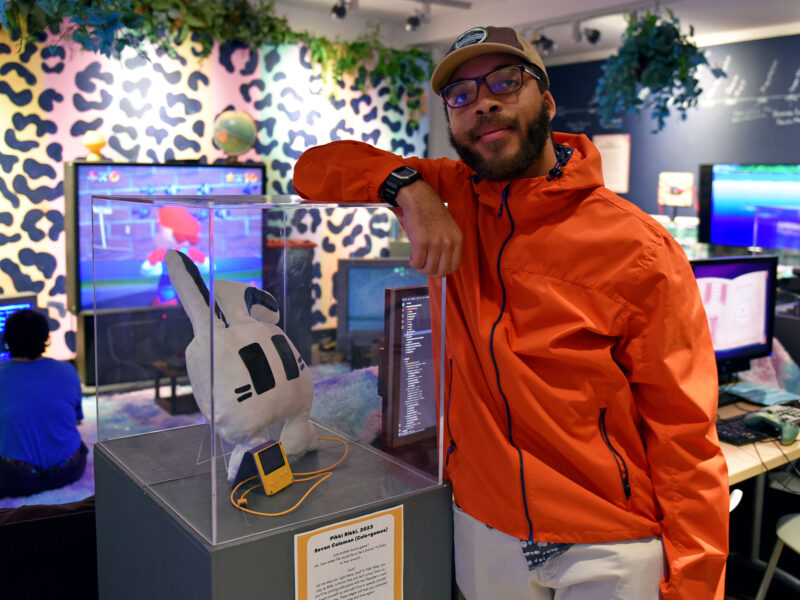Research Internship Highlights the Future of Digital Humanities

Undergraduate researchers from across the country convened in Vermont this summer for a special National Science Foundation (NSF) program designed to stimulate competitive research. Computer Science & Innovation major Kim Benson ’27 was among 11 undergraduates chosen for the 10-week, residential research internship with the Science of Online Corpora, Knowledge, and Stories (SOCKS) program based out of the University of Vermont (UVM).
Alongside students from schools and colleges across the country, Benson took on SOCKS’ interdisciplinary mission to “provide new insights into the power and use of stories and narratives across a broad array of social, economic, and health domains” through analysis of diverse stories, written text, and big data. In other words, apply digital humanities to a meaningful topic to research.
With such a broad mission, SOCKS narrowed down areas of research for interns to focus on, and Benson selected to explore topics of indigenous voices in global environmental governance before landing on their project. Benson’s research, “The Integration of Māori Knowledge Into Environmental Governance,” focuses on the relationship between New Zealand’s environmental policies and the growing number of Māori people occupying government leadership positions.
“To me, the appeal of SOCKS was using skills that you learn for computer science for good, because that’s why I love computer science—like any science, it can be used to help the world,” Benson says.
New Knowledge Comes from the Unexpected
Benson first learned about the internship from Jonathan Banfill, assistant professor in the Core Division and Digital Humanities major, while auditing one of his Core classes—and immediately took interest in the opportunity. Recognizing Benson’s computer science background and unique ability to tackle complex topics, Banfill recommended them for the program.
“I thought they were the perfect person, because they had that combination of the technical piece of it—understanding data and computers and that sort of technical systems infrastructure,” Banfill says. “But then this is really thinking critically about labor and the longer term impacts of certain technologies. That seemed like the perfect kind of background for what SOCKS is doing: experimenting with technology, trying to use it for interesting and unexpected things.”
A Focus on Māori Knowledge and Government Policy
During the internship, Benson was paired with a faculty advisor and SOCKS program affiliate, Professor Kemi Fuentes-George from Middlebury, to develop and plan a research project that would ultimately tell a story using data. What they found was that New Zealand has made significant strides in environmental policy since 1996, when the country introduced legislation that removed a four-seat maximum to the number of Māori representatives allowed in its 120+ member House of Representatives.
With the increase of Māori representation and indigenous voices over time, New Zealand has improved its environmental mapping and governmental policies to consider scientific, economical, cultural, and spiritual aspects of environmental policies. Among the most significant is the Whanganui River Claims Settlement Act of 2017, which granted the rights of a person to a river.
Putting their technical skills to the test, Benson compiled, organized, and created graphs out of their data and made a Cultural Health Index graph that helped put into perspective New Zealand’s improvements since 1996. They hope to expand their research and create more data visualizations to help the information be more accessible and easy to read.
“Often, you see art as separate from math—but art has some underlying math principles in it. Science has underlying math principles. Technology has underlying science and math principles. There’s also art design that goes into technology,” Benson says.
Champlain at the Forefront of Undergraduate Digital Humanities Studies
Like Benson’s research advisor, Champlain faculty members Jonathan Banfill, Katheryn Wright, and Caroline Toy are also SOCKS program affiliates, and are currently conducting their own research about how Vermont soundscapes have changed over the last 200 years. The Champlain faculty are partnering with nearby colleges including St. Michael’s College and Middlebury College for their SOCKS research project to develop a richer understanding of the stories hidden in Vermont’s soundscape.
As the Digital Humanities major at Champlain College kicks off with professor Banfill and Program Director Wright at the helm, the hope is that more students will be exposed to this reinvented, interdisciplinary approach to research. Like the SOCKS research internship Benson completed this summer, the Digital Humanities degree is designed to inspire students to tackle real-world problems with creative outlooks and use the technical skills they learn in class to broaden our understanding of the world as a whole.
Banfill commented, “The SOCKS project is interdisciplinary. It is weaving together both technical skills and a kind of humanistic and critical consciousness—someone like Kim would be the ideal student for the Digital Humanities program: someone who can take things from both sides of those questions, but do it in a way that really harmonizes and creates one thing.”
And Benson agrees. “I think that’s really important—especially in the research world—that there are different perspectives. When we don’t have those perspectives, the world is more boring, less interesting, and less well thought-out.”
Looking for more information about Champlain College? Start here!
Fill out the form to receive helpful information!
Author
More Inside The View
Ideas
From the minds of our students, faculty, and alumni.
News
The latest from Champlain College.
People
Champlain is more than just a place; it's a community.
Places
On campus, in Burlington, and beyond.
Events
Check out our many campus events and get involved! Refine your search by using the filters or monthly view options.


